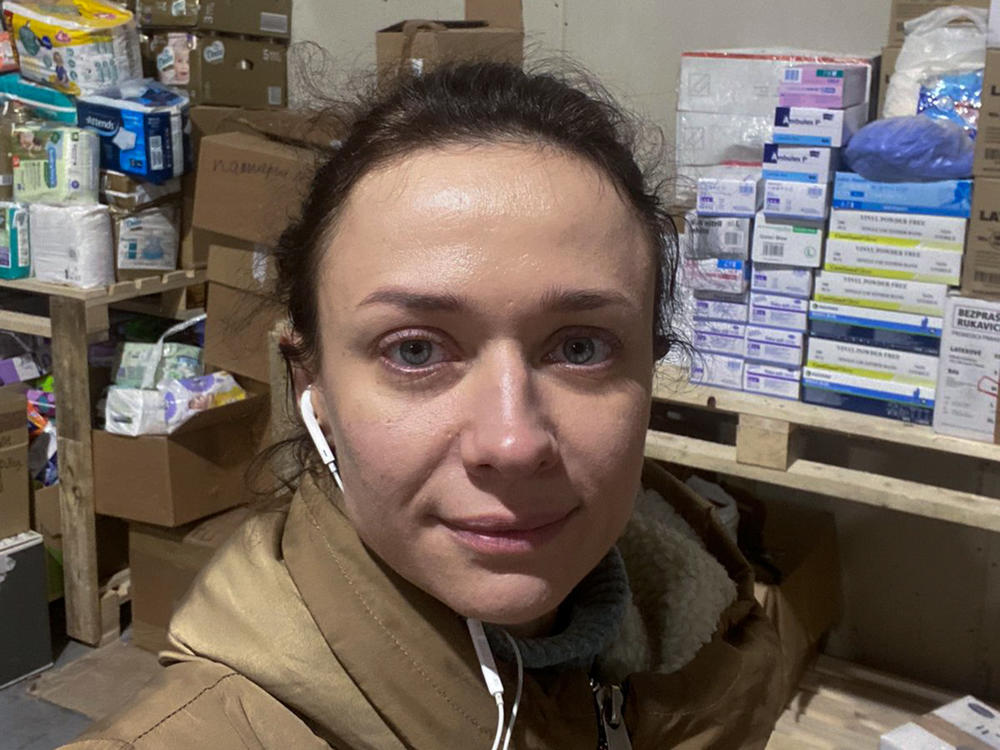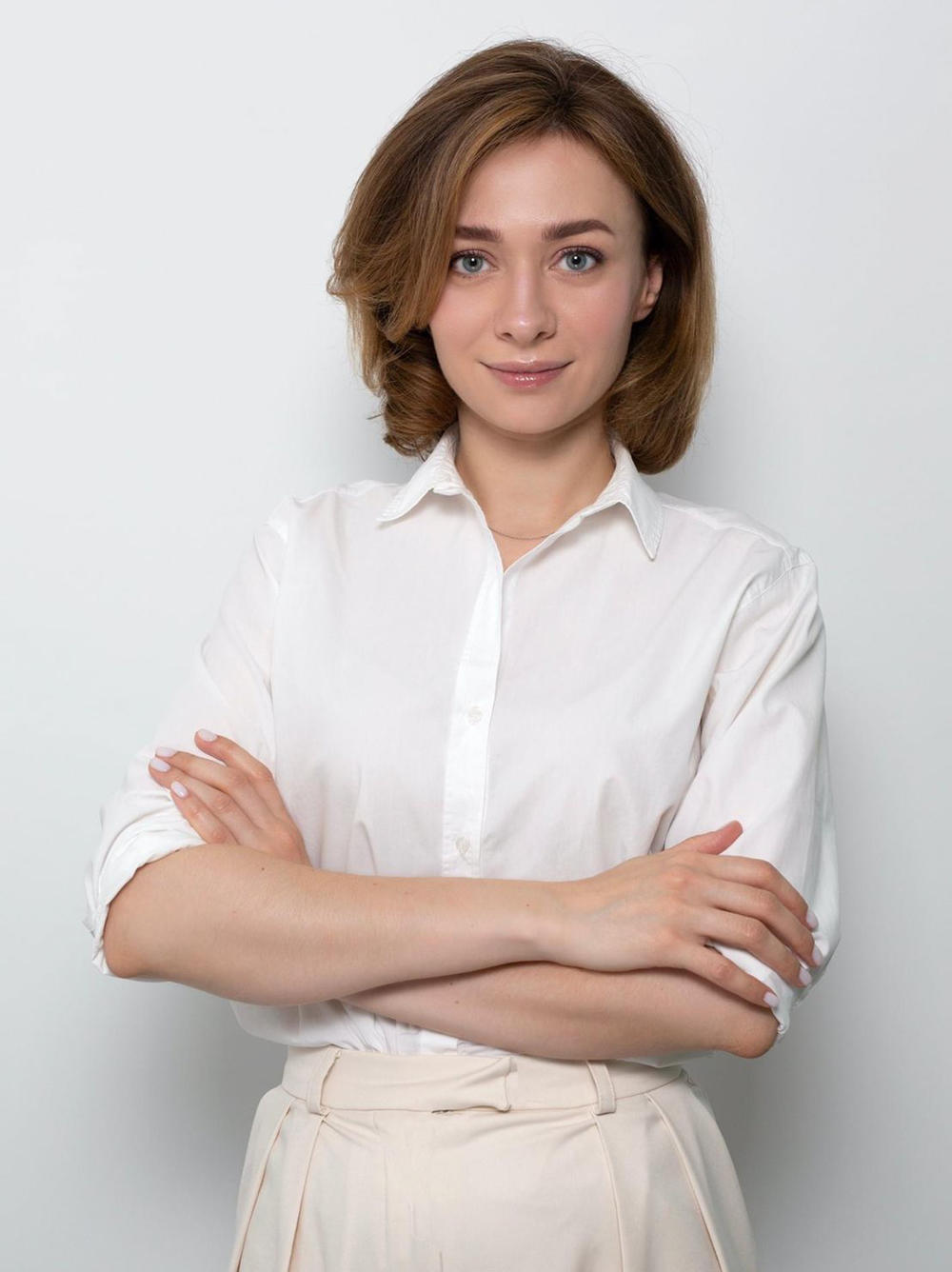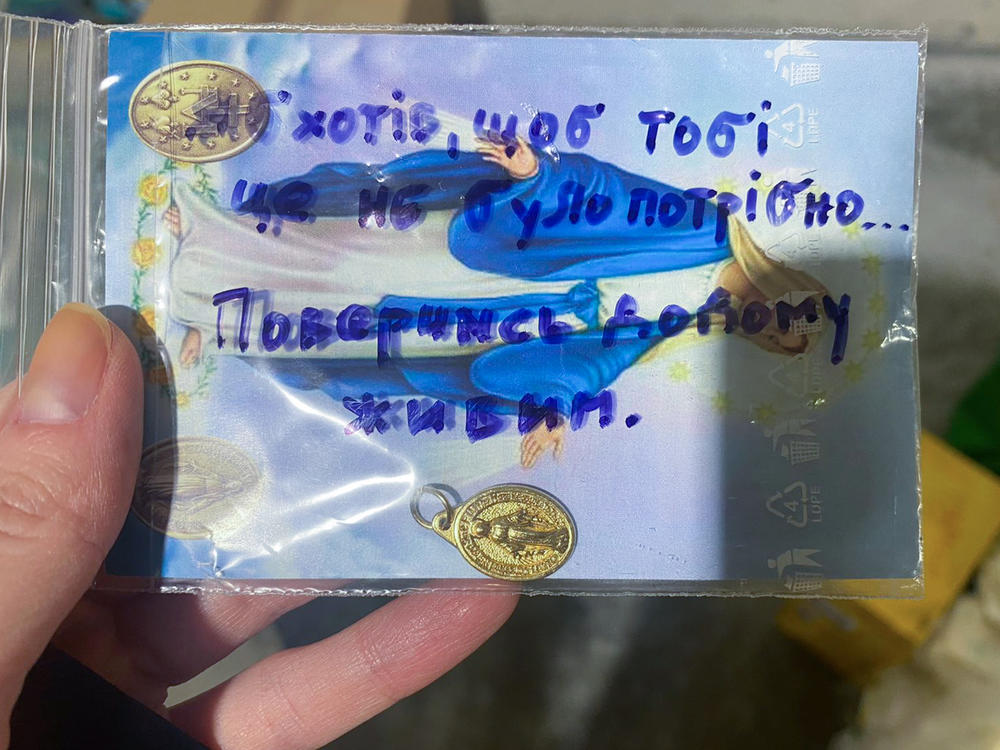Section Branding
Header Content
The humble bravery of a young neurologist from Kyiv
Primary Content
Before the sun came up on the morning of Feb. 24, Aleksandra Shchebet woke to the sound of explosions some 25 miles away from her home in Kyiv. First one, then another, then more.
That's when her dad called and said, "Did you hear Putin started war?" Shchebet was incredulous. "It took me a few hours to realize it's not a joke, it's not a bad movie and I'm in it already," she says.
Shchebet and a friend who lived next door went to a bomb shelter. But as the day wore on, Shchebet realized she needed to evacuate the city. By 9 that night, she left behind all she owned and drove west in two cars with her grandmother, parents, brother, sister-in-law, 3-year-old nephew and two friends. They drove 24 hours without sleeping. Finally, they arrived in Lutsk, a city in northwest Ukraine near Poland and Belarus that seemed far from the frontlines. They found an apartment to rent and that's where they stayed.
In Kyiv, Shchebet worked as a neurologist and ran her own private practice. In Lutsk, she wanted to help, so she started offering medical consultations online or over the phone, free of charge. This past Thursday, she got a distressing call from a young woman whose grandmother was having trouble talking and wasn't able to swallow or move her left arm or leg. "Tell me what to do," the caller implored.
Shchebet recognized the symptoms as an acute stroke of the brainstem. She learned that this woman's grandmother was in a bomb shelter in Kyiv where she couldn't receive proper medical attention. "And I didn't know what to say," says Shchebet. So she told her there wasn't really anything to do except wait for the bombing to stop, call an ambulance and try to get to a hospital. "So I suppose she will be dead in a few hours," she remembers thinking. "And I felt devastated."
This woman's grandmother did end up passing away in her sleep. "I'm not saying I'm depressed," says Shchebet, "but my heart is broken, actually. I'm a good neurologist. And now I'm not able to help."
At least not the way she used to. Shchebet has found another way to help. Starting at 7 in the morning, she spends 14 hours a day at a cold concrete warehouse in Lutsk where she sorts, counts and packs up food and medical supplies donated by a volunteer group outside the country. The boxes are loaded onto trucks that drive them deeper into Ukraine. For each item she touches, she imagines its final destination.
"I know this medication will go to [a] Kyiv hospital to the surgery department," she says. "And I know the sewing kit will be used by a surgeon. And somehow, it will save a life of someone. Maybe it will be a soldier, or maybe it will be a civilian, but it will save somebody's life."
(Below: In this video, Dr. Alexksandra Shchebet surveys a warehouse in Lutsk where she volunteers to sort and package food and medical supplies for distribution deeper into Ukraine.)
Shchebet has tried to keep in touch with her friends and colleagues elsewhere in the country. She recently learned that two surgeons she knew were killed in Chernihiv. They were performing surgery when a bomb landed in the middle of the operating room. "It's an enormous tragedy," she says. As a neurologist, she's acutely aware that this war will lead to numerous and lasting cases of PTSD and depression.
Shchebet says for now, she has no intention of leaving Ukraine. Her sister and little nephew may evacuate to Poland, but she's staying.
"It's our country," she says. "It's our home. We can't leave. I hope the war will end as soon as possible." Instead of days, Shchebet says it's felt like 10 years to her since the attack began.
But she believes in Ukraine. "We will survive and we will build a new country very soon," she says.
There's something else Shchebet is sending toward the battlefront — letters from people outside the country. They come nestled among all the survival and medical supplies, to be read by anyone who opens the boxes.
"We are receiving a lot of letters of love," she explains. One of those letters was from Poland, tucked in alongside drugs to prevent hemorrhaging. It said, "I wish you don't need this. Come back home alive."
"I see those letters written by pen, by hand. And it's melting my heart.," Shchebet says. "Actually, when I see those letters, I cry."
Copyright 2022 NPR. To see more, visit https://www.npr.org.



